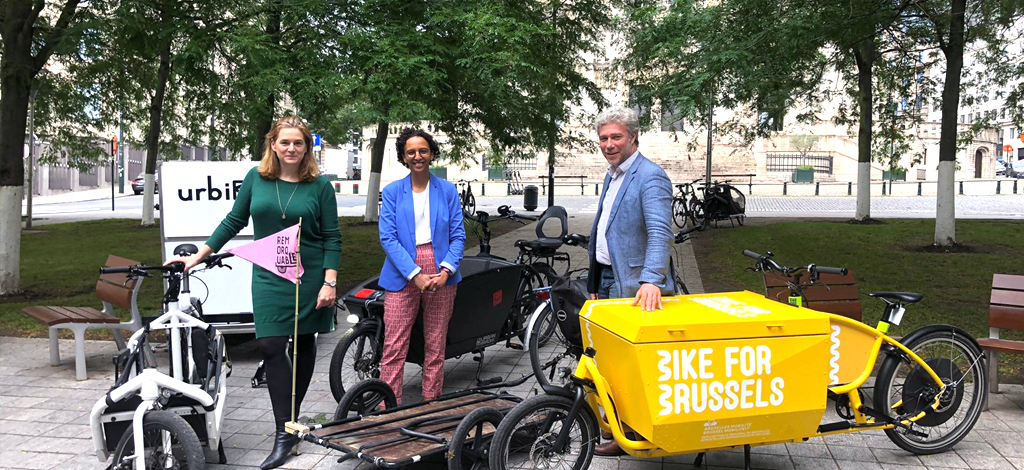CAIRGO BIKE: accelerating the use of cargo bikes in Brussel with European funding
The CAIRGO BIKE project, which is spearheaded by Brussels Mobility, was selected during the most recent call for projects of the European Urban Innovative Actions initiative. This project, which promotes soft mobility in Brussels, has been allocated a budget of €4.7 million by the European Regional Development Fund (ERDF).
The CAIRGO BIKE project aims to create an ecosystem which enables a modal switch from vans (and family cars) to cargo bikes.
By encouraging people to use cargo bikes to transport goods and people, the project hopes to improve air quality and reduce congestion in the Brussels-Capital Region (BCR).
CAIRGO BIKE, which is led by Brussels Mobility, brings together four regional public players (Brussels Mobility, Environment Brussels, Brussels Economy & Employment and Parking.brussels), a university (Vrije Universiteit Brussel – VUB) in addition to five private or association players (BePark, Cambio, Pro Velo, Remorquable and Urbike).
CAIRGO BIKE, selected from 222 European projects
CAIRGO BIKE is one of 11 projects selected – from a total of 222 projects that were submitted – as part of the 5th and last call for projects of the Urban Innovative Actions initiative. This EU initiative aims to provide cities with the resources to test innovative solutions to major urban challenges.
To execute the CAIRGO BIKE project, the BCR will receive €4.7 million (out of a total budget of €5.8 million) from the European Union over the next two years through the European Regional Development Fund (ERDF).
This is the second Brussels project to receive funding in the framework of the Urban Innovative Actions initiative, after the CALICO project. The latter, which was selected in 2018, aims to develop a new type of intergenerational housing, along the lines of the Community Land Trust, which will also focus on the aspect of gender and housing problems.



